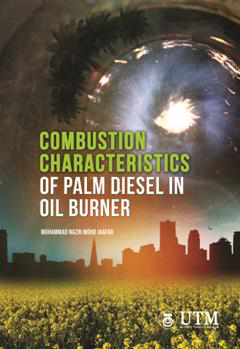Description
Biofuel is regarded as a potential replacement of fossil fuel nowadays. Biodiesel is one form of biofuel that can be used as a replacement fuel for diesel. Biodiesel has many advantages, such as biodegradable, sustainable, renewable in a closed carbon cycle, cheap energy resources, environmentally clean, and non–toxic. There are different blends of biodiesel around the world. In Malaysia, one form of biodiesel is the direct blending of palm oil with diesel at different percentages. This is known as Envo–diesel. Envo–diesel blends have different physical properties, such as higher viscosity, cetane number and lower heating values, compared to conventional diesel fuel. These different properties of fuel can influence the spray and atomisation characteristics when used in oil burners. The spray and atomisation characteristics play a significant role in combustion processes and emission formation. This book presents a study on the combustion characteristics of palm diesel in a burner system. The emissions such as nitrogen oxides (NOx), carbon monoxide (CO), sulphur dioxides (SO2) and unburned hydrocarbons (UHC) generally showed better performance besides improved combustion qualities. However, the combustion efficiencies were reduced slightly due to lower temperature encountered during the combustion. This, however, is due to the lower heating value of palm diesel blends.




